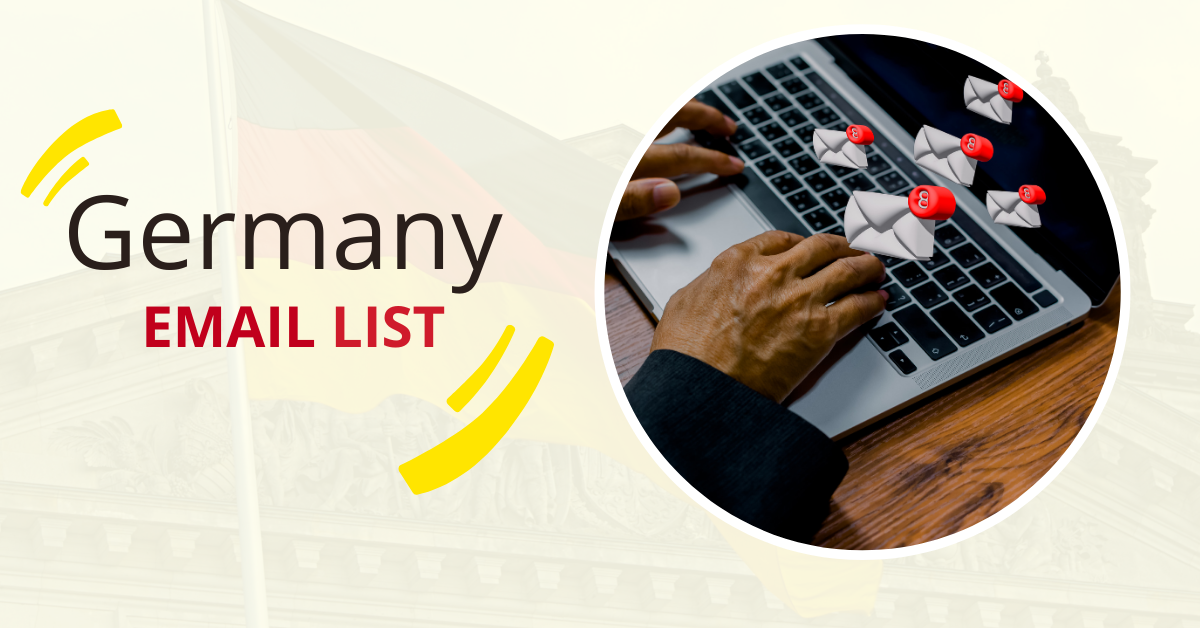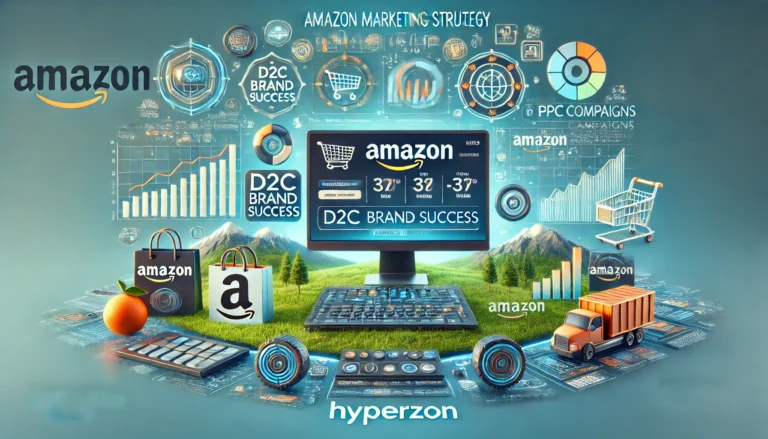
Germany is one of Europe’s largest economies and a leading global market in a variety of industries. Whether your business is targeting consumers or professionals in sectors like technology, manufacturing, finance, or retail, an effective email marketing campaign is a powerful tool to drive engagement and conversions. At the heart of every successful email marketing strategy is a well-curated Germany email list that enables businesses to reach the right audience with relevant and personalized content.
In this article, we will explore the importance of a Germany email list, how to build or acquire a high-quality list, strategies for creating effective email campaigns, and the significance of compliance with data privacy laws, such as the General Data Protection Regulation (GDPR).
Why Email Marketing is Effective in Germany
Email marketing is a direct and cost-effective way to communicate with potential customers and professionals in Germany. The country has one of the highest internet penetration rates in Europe, with approximately 94% of the population regularly using the internet. In a highly connected society, email marketing provides businesses with a valuable platform to build relationships, promote products, and deliver value.
Some of the key advantages of email marketing in Germany include:
- High return on investment (ROI): Email marketing offers one of the best ROIs in digital marketing, making it an essential tool for businesses looking to increase sales and grow their customer base. For every $1 spent on email marketing, businesses can expect an average return of $42.
- Personalized communication: Email allows for personalized marketing, enabling businesses to tailor messages to individual recipients based on their preferences, location, and behavior.
- Broad reach: With millions of active email users in Germany, businesses can reach a large and diverse audience in both the B2B and B2C sectors.
- Measurable results: Email marketing platforms provide detailed analytics, allowing businesses to track performance metrics such as open rates, click-through rates, and conversions, making it easy to optimize future campaigns.
The Importance of a Germany Email List
A high-quality, segmented Germany email list is the foundation of any successful email marketing campaign. Without a targeted list, businesses risk sending irrelevant content to the wrong audience, resulting in low engagement and poor performance. A well-constructed email list, on the other hand, enables businesses to connect with the right individuals, whether they are consumers or decision-makers in key industries.
Here are some reasons why having a Germany email list is critical:
1. Targeted Audience
Germany is a diverse and dynamic market, with a population of over 83 million people and a wide range of industries. By using a targeted Germany email list, businesses can segment their audience based on key factors such as location, industry, job title, or purchasing behavior. This level of segmentation ensures that your messages are relevant to the recipients, leading to higher engagement rates.
For example, if you’re a B2B company selling industrial equipment, a segmented list of contacts in Germany’s manufacturing sector will allow you to focus on reaching key decision-makers in that industry.
2. Localized Marketing
Localization plays a significant role in connecting with German consumers and professionals. A Germany email list enables businesses to tailor their content to the local market, taking into account cultural preferences, language, and regional trends. This can significantly improve the effectiveness of your email campaigns.
For instance, providing content in the German language and addressing the needs and concerns of German customers shows that your business understands the local market. Personalization at this level can build trust and foster stronger relationships with your audience.
3. Higher Engagement and Conversion Rates
When businesses target the right audience with relevant content, they are more likely to see higher engagement and conversion rates. A Germany email list ensures that your emails are being delivered to individuals who are genuinely interested in your products or services. This targeted approach leads to more opened emails, higher click-through rates, and ultimately, more sales.
4. Cost-Effective Marketing
Purchasing or building a Germany email list can save businesses time and resources. Instead of spending months trying to manually gather contact information, a pre-verified email list provides instant access to a large pool of leads. This allows businesses to focus on crafting compelling email campaigns rather than worrying about data collection.
How to Build or Acquire a Germany Email List
When it comes to building or acquiring a Germany email list, businesses have two primary options: organically growing the list or purchasing a pre-verified list from a reputable provider.
Building an Organic Germany Email List
Building an organic email list takes time, but it often results in higher engagement and better long-term relationships with subscribers. An organic list consists of individuals who have willingly opted in to receive your emails, making them more likely to interact with your content.
Here are some strategies for building an organic Germany email list:
- Website sign-up forms: Encourage visitors to subscribe to your newsletter or promotional emails by placing prominent sign-up forms on your website, blog, or landing pages. Offering incentives such as exclusive discounts or access to premium content can help increase sign-ups.
- Lead magnets: Offering valuable resources such as eBooks, whitepapers, or guides in exchange for email addresses is an effective way to grow your email list. Ensure that your lead magnets are relevant to your target audience in Germany.
- Webinars and events: Hosting webinars, online workshops, or industry-specific events can attract professionals in Germany and provide an opportunity to collect email addresses from participants.
- Social media promotion: Promote your email list through targeted ads or posts on platforms like LinkedIn, Facebook, or Instagram, focusing on German audiences. Encourage followers to subscribe by highlighting the benefits of joining your list.
- Referral programs: Create a referral program that encourages current subscribers to refer others in exchange for rewards, discounts, or special offers.
Purchasing a Pre-Verified Germany Email List
If your business needs immediate access to a large number of contacts, purchasing a pre-verified Germany email list is a quick and efficient option. These lists are typically segmented by industry, location, or job title, allowing you to target specific demographics and industries.
Here’s what to look for when purchasing a Germany email list:
- Segmentation: Ensure that the list is properly segmented based on criteria relevant to your business, such as geographic location (e.g., Berlin, Munich, or Hamburg), industry (e.g., technology, healthcare, or manufacturing), or job titles (e.g., CEOs, marketing directors, or sales managers).
- Accuracy: The email list should be up-to-date and verified to avoid issues like high bounce rates or sending emails to inactive or incorrect addresses.
- Compliance: The list should comply with data privacy regulations, including GDPR (General Data Protection Regulation), to ensure that you have the necessary consent to send marketing emails.
- Industry-specific contacts: If your business operates in a specific sector, look for email lists that focus on your target industry for better relevance and engagement.
Reputable providers like SaleLeads offer high-quality, pre-verified Germany email lists that are compliant with GDPR and segmented to match your target audience.
Strategies for Effective Email Marketing in Germany
Once you have acquired a Germany email list, the next step is to create email campaigns that resonate with your audience. Here are some strategies for effective email marketing in Germany:
1. Personalize Your Emails
Personalization is one of the most effective ways to increase engagement. Use the recipient’s name in the subject line or greeting and tailor the content based on their preferences or previous interactions with your brand. Personalization can also extend to localization by addressing the recipient’s region or industry.
2. Segment Your Germany Email List
Segmentation is key to delivering relevant content to your audience. Divide your email list into smaller segments based on factors like location, job title, industry, or purchase behavior. For instance, you can create different email campaigns for business owners in Munich versus executives in Berlin.
3. Provide Value
German consumers and professionals appreciate emails that provide value, whether it’s in the form of industry insights, helpful tips, or exclusive offers. Ensure that your emails are more than just promotional content. Offer information or resources that address the needs and challenges of your audience.
4. Multilingual Content
While many Germans speak English, offering content in German can improve engagement and build stronger relationships with your audience. Consider sending emails in both English and German, especially for B2C campaigns or businesses that target local markets.
5. Optimize for Mobile Devices
With the majority of users checking their emails on mobile devices, ensure that your emails are optimized for mobile screens. Use responsive design, concise subject lines, and clear calls to action to capture attention and drive conversions from mobile users.
6. A/B Testing and Analytics
A/B testing allows you to experiment with different elements of your email campaigns, such as subject lines, CTAs, or content layout. Regularly monitor key metrics like open rates, click-through rates, and conversions to optimize your campaigns and achieve better results over time.
Compliance with GDPR and Data Privacy in Germany
When conducting email marketing in Germany, businesses must comply with the General Data Protection Regulation (GDPR), which governs how personal data is collected, processed, and stored. GDPR requires that businesses obtain explicit consent from recipients before sending marketing emails.
To ensure compliance:
- Obtain consent: Make sure that recipients have opted in to receive your emails, either through a sign-up form or another method that provides clear consent.
- Provide opt-out options: Every email should include an easy way for recipients to unsubscribe from future emails.
- Data protection: Store and process personal data securely, and only collect data that is necessary for your marketing efforts.
Failure to comply with GDPR can result in substantial fines, so it’s important to follow the regulations closely when building or purchasing a Germany email list.
Conclusion
A well-segmented and high-quality Germany email list is a valuable asset for any business looking to succeed in the German market. Whether you choose to build your list organically or purchase a pre-verified list, targeting the right audience with relevant content can significantly improve your email marketing results.
By focusing on personalization, segmentation, localization, and compliance with GDPR, businesses can create impactful email campaigns that resonate with German consumers and professionals, driving higher engagement and conversions. With the right strategy and a solid email list, email marketing can become a powerful tool for growth and success in Germany.






